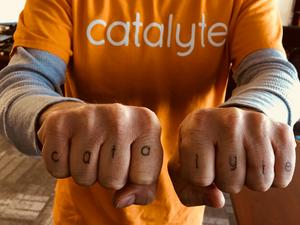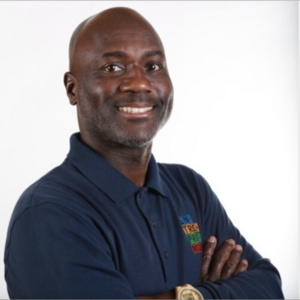
Baltimore company Catalyte has won part of a contract worth up to $15 million to create a new source of tech talent for the state of Maryland.
The base $9 million contract could produce between 90 and 100 new jobs in the state, CEO Jacob Hsu said. The contract is split between Catalyte and Largo company Digital Network Group, although Hsu said there is no set allocation of how much each company would get. The contract also includes two possible renewal options for $3 million a year.
Catalyte specializes in identifying individuals with diverse backgrounds who may lack traditional qualifications to be hired in the tech industry, but demonstrate a certain aptitude for technical work. The company trains them for lucrative, high-growth careers as software developers. Catalyte is not charging any upfront cost to either the state or the people they train. Instead, the contract represents a commitment by the government to hire the staff Catalyte produces through an apprenticeship program.
The contract is a culmination of Catalyte’s efforts to make inroads into the public sector and comes as the company is embarking on a hiring spree to add hundreds of new positions this year. Four years ago, Hsu tried to get the state government to build a digital service corps in Maryland, but when his efforts failed, Hsu turned to Baltimore and created a technology fellowship in the city in 2020.
“Who better to develop your online water billing system than someone who actually pays their water bill every month in the city,” Hsu said.
That fellowship program proved to be key in convincing the state that Catalyte’s efforts could help the government solve problems, while creating jobs in the community.
“We proved that we could create entire software development teams, powered by local residents, who may come from non-traditional backgrounds,” Hsu said.
The contract is the largest one Catalyte has signed with a public sector client, a market Catalyte has been trying to expand into. Now that there is a contract in place, Hsu hopes to target communities by ZIP code to help benefit underserved areas.
When looking for apprentices, Catalyte doesn't rely on past experience but instead asks people to complete a test that determines if they have the personality and temperament that would fit a position. Many of the people Catalyte trains are from relatively low-income jobs. The average person begins a Catalyte program earning $25,000 a year; five years after graduation they on average make $98,000 a year, according to the company.
Despite the stock market decline and slowdown in venture capital funding so far this year, Catalyte still has plans for growth. The company currently employs 650 people, including developers on contract, and Hsu plans to add 500 new staffers this year. Since much of the downturn is driven by inflation, causing an increase in wages for software developers, the Catalyte model creates a more stable cost structure — and a stable talent marketplace — ensuring a steady stream of new hires for clients, Hsu said.
The contract with the state represents part of a new business plan for the company. Previously, Catalyte would train software developers who would stay at the company, but now developers trained at Catalyte are meant to become permanent employees at other companies. Koch Industries, which sought out Catalyte to train new programmers in Wichita, Kansas, is one of the first clients to work with Catalyte based on this new talent pipeline model. Many of the people trained in Wichita were existing Koch employees. The company also works with companies with a large presence in Baltimore such as T. Rowe Price Group Inc. and Exelon Corp.
A benefit of the new Catalyte model is that clients are able to have the company provide customized training based around specific needs.
"When you're looking for a software developer, you're not looking for a theoretical software developer who knows full stack," Hsu said. "You're looking for somebody who has an exact skill set to solve an exact kind of business problem."







